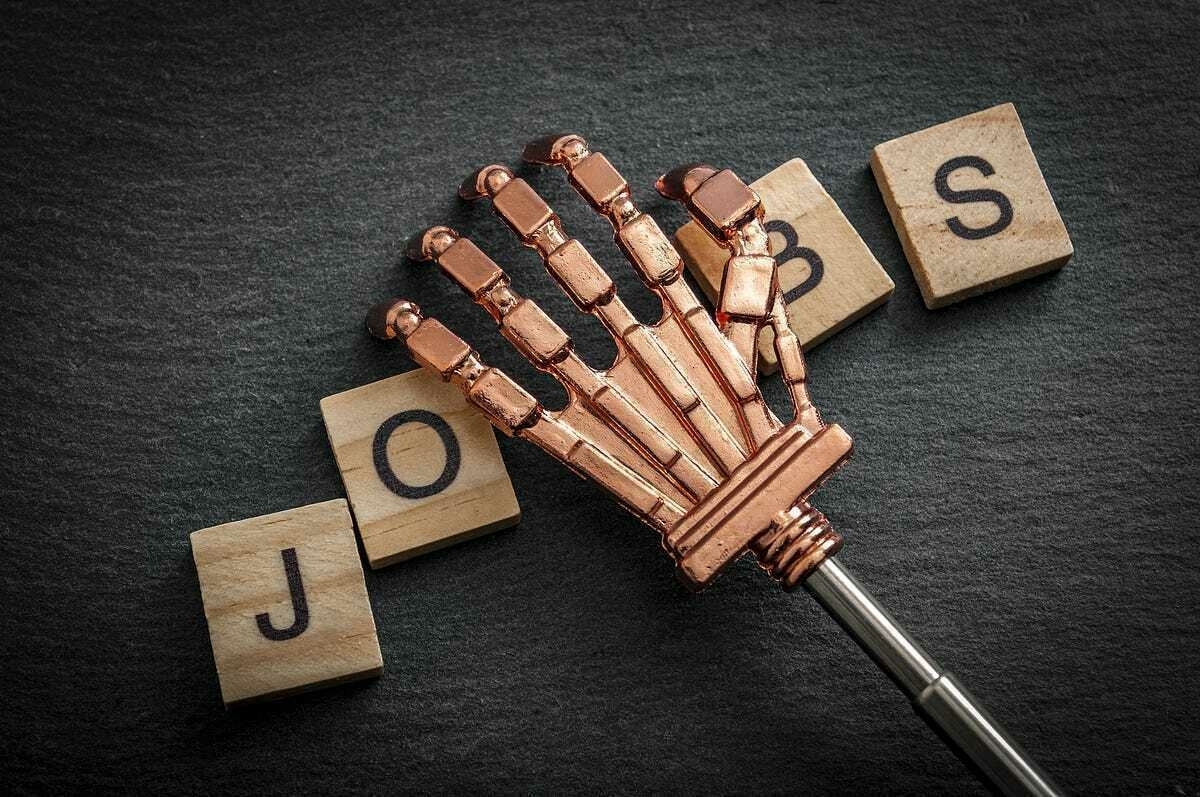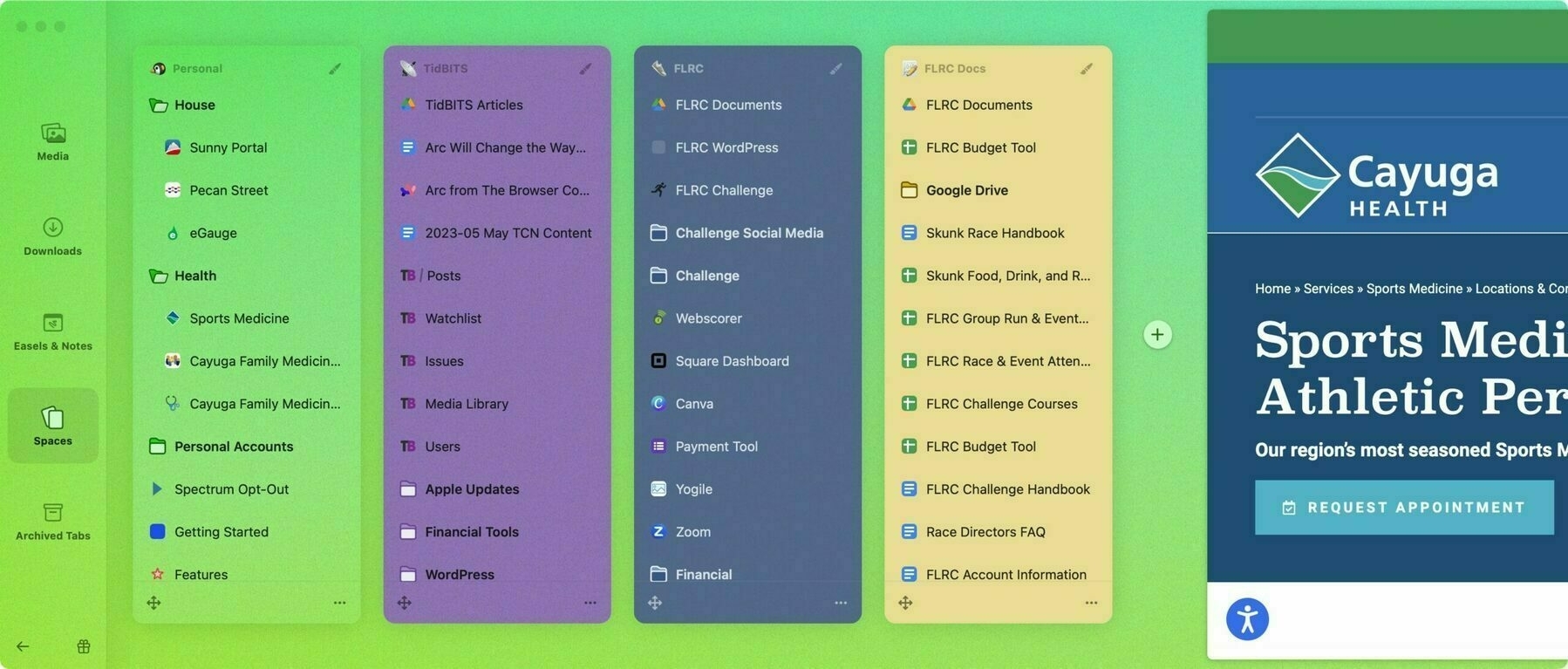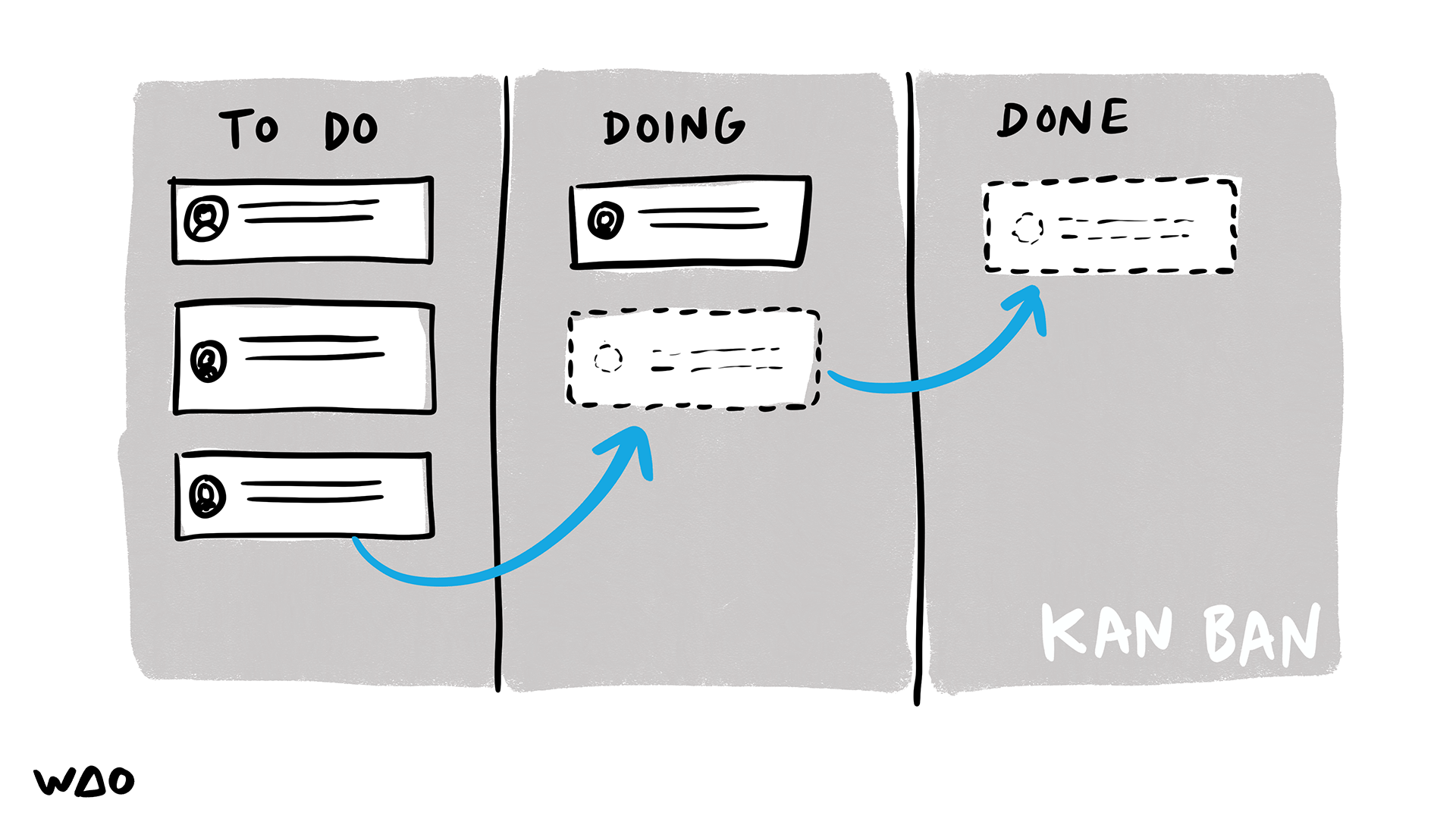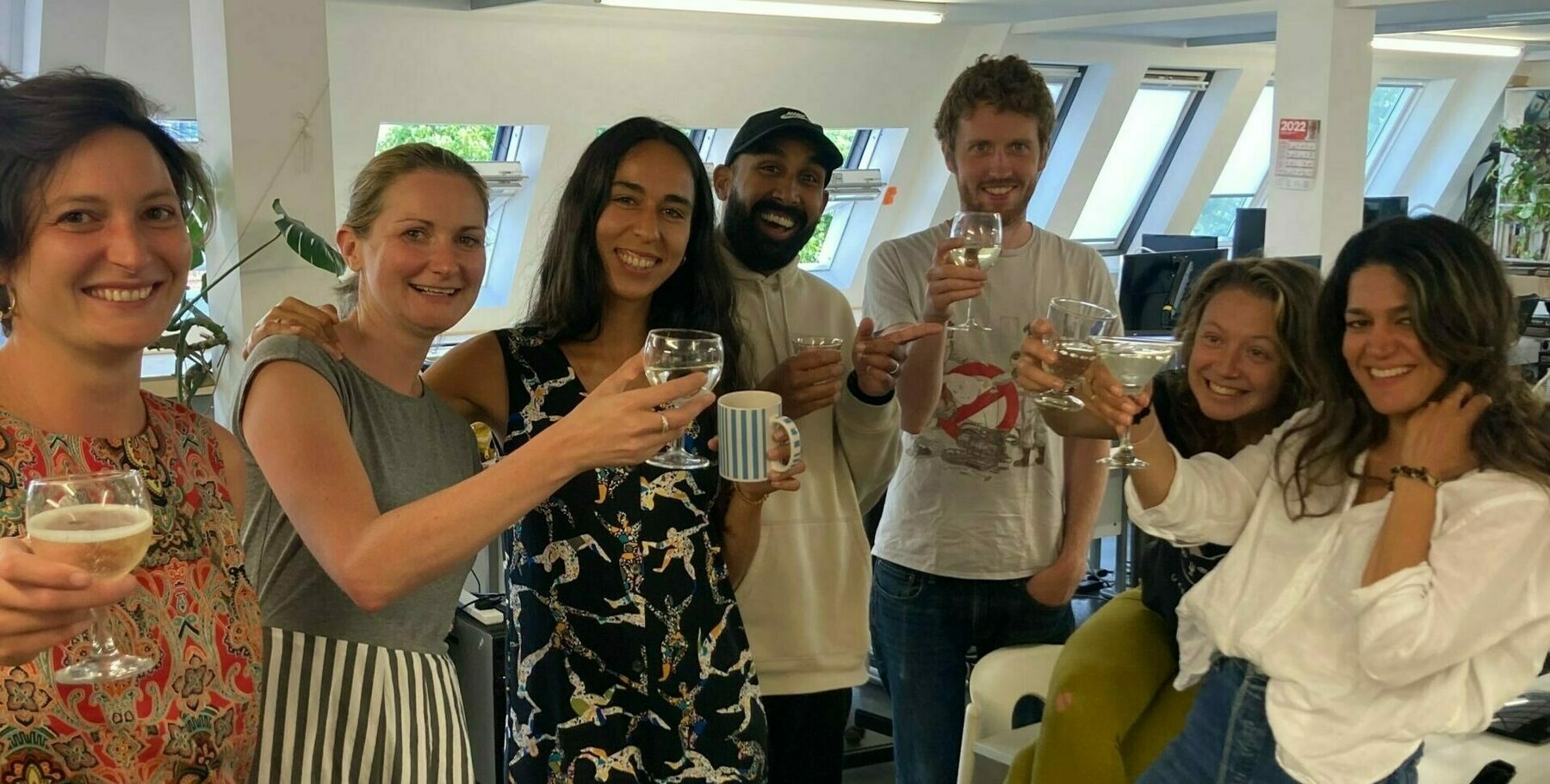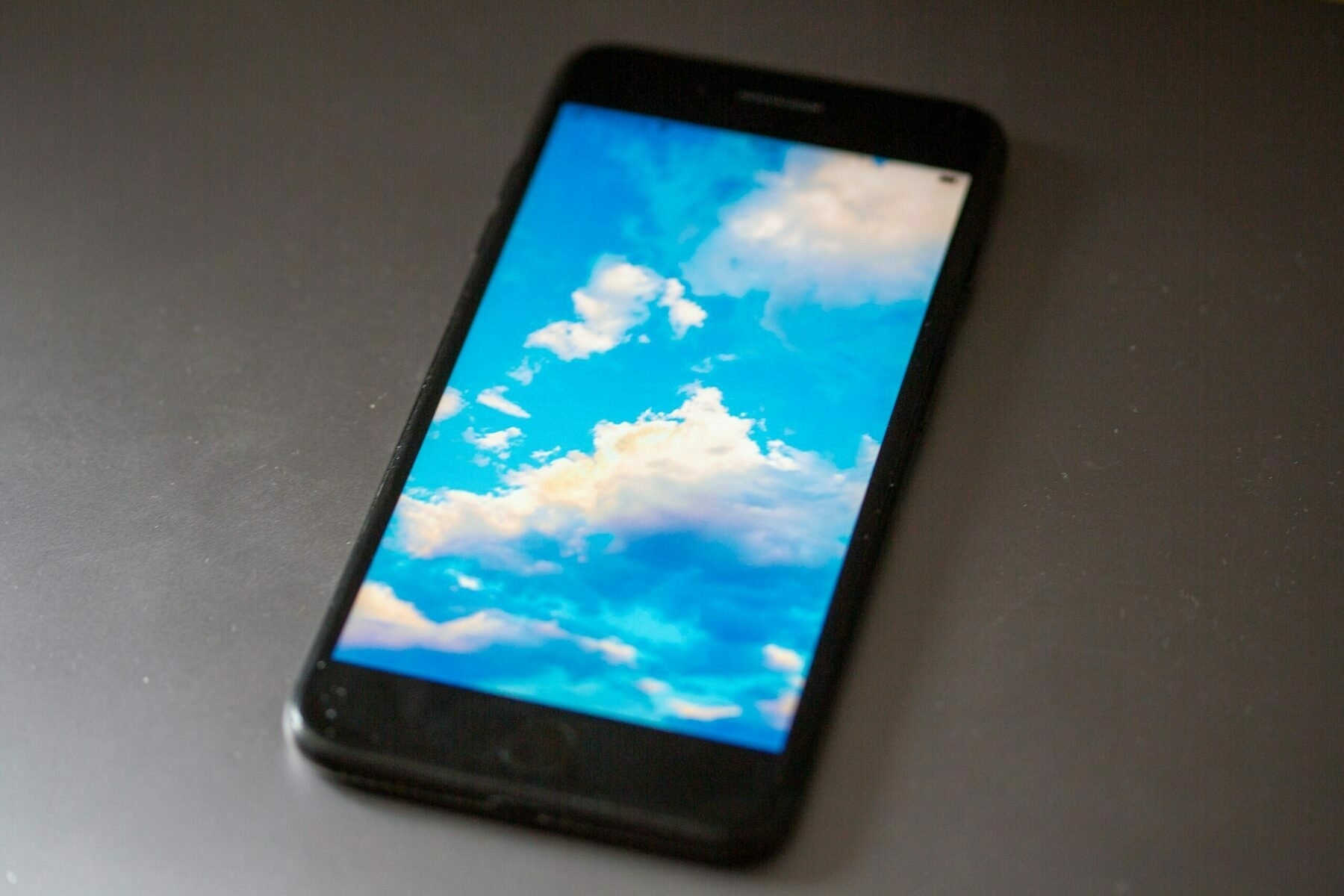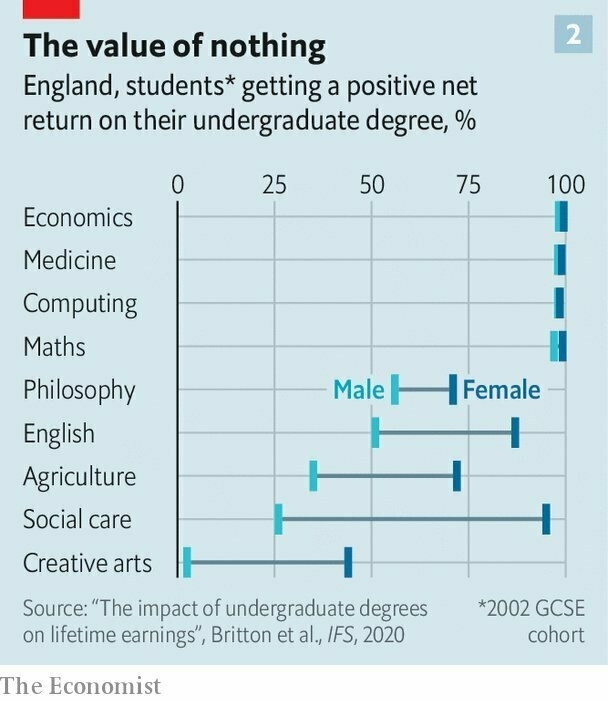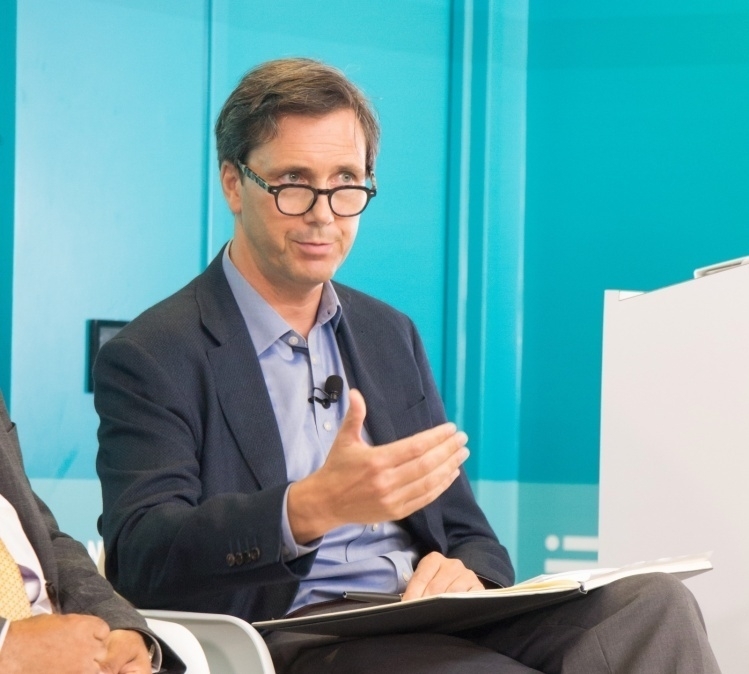AI and work socialisation
I've bolded what I consider to be the most important part of this article by danah boyd. It's a reflection on two different 'camps' when it comes to AI and jobs, but she surfaces an important change that's already happened in society when it comes to the workforce: we just don't train people any more.
Couple this with AI potentially replacing lower-paid jobs (where people might 'learn the ropes while working) and... well, it's going to be interesting.
Source: Deskilling on the Job | danah boydWhile getting into what it means to be human is likely to be a topic of a later blog post, I want to take a moment to think about the future of work. Camp Automation sees the sky as falling. Camp Augmentation is more focused on how things will just change. If we take Camp Augmentation’s stance, the next question is: what changes should we interrogate more deeply? The first instinct is to focus on how changes can lead to an increase in inequality. This is indeed the most important kinds of analysis to be done. But I want to noodle around for a moment with a different issue: deskilling.
[...]
Today, you are expected to come to most jobs with skills because employers don’t see the point of training you on the job. This helps explain a lot of places where we have serious gaps in talent and opportunity. No one can imagine a nurse trained on the job. But sadly, we don’t even build many structures to create software engineers on the job.
However, there are plenty of places where you are socialized into a profession through menial labor. Consider the legal profession. The work that young lawyers do is junk labor. It is dreadfully boring and doesn’t require a law degree. Moreover, a lot of it is automate-able in ways that would reduce the need for young lawyers. But what does it do to the legal field to not have that training? What do new training pipelines look like? We may be fine with deskilling junior lawyers now, but how do we generate future legal professionals who do the work that machines can’t do?
This is also a challenge in education. Congratulations, students: you now have tools at your disposal that can help you cut corners in new ways (or outright cheat). But what if we deskill young people through technology? How do we help them make the leap into professions that require more advanced skills?
[...]
Whether you are in Camp Augmentation or Camp Automation, it’s really important to look holistically about how skills and jobs fit into society. Even if you dream of automating away all of the jobs, consider what happens on the other side. How do you ensure a future with highly skilled people? This is a lesson that too many war-torn countries have learned the hard way. I’m not worried about the coming dawn of the Terminator, but I am worried that we will use AI to wage war on our own labor forces in pursuit of efficiency. As with all wars, it’s the unintended consequences that will matter most. Who is thinking about the ripple effects of those choices?
Attempting to quantify the unquantifiable
This article, which I discovered via Sentiers, discusses the rise of ‘Quantitative Aesthetics’, or putting numbers on things you like to prove other people wrong. It’s basically numbers as a shorthand for status, and once you realise it, you see it everywhere. It’s the social media-ification of all of the things.
[T]here’s something called the McNamara Fallacy, a.k.a. the Quantitative Fallacy. It is summarized as “if it cannot be measured, it is not important.” The Heller article made me reflect on how a version of it is now very present, and growing, at the grassroots of taste.Source: How We Ended Up in the Era of ‘Quantitative Aesthetics,’ Where Data Points Dictate Taste | ArtnetOn one level, this is seen in a rise of a kind of wonky obsession with business stats in fandoms, invoked as a way to convey the rightness of artistic opinions—what I want to call Quantitative Aesthetics. (There are actually scientists who study aesthetic preference in labs and use the term “quantitative aesthetics.” I am using it in a more diffuse way.)
It manifests in music. As the New York Times wrote in 2020 of the new age of pop fandom, “devotees compare No. 1s and streaming statistics like sports fans do batting averages, championship, wins and shooting percentages.” Last year, another music writer talked about fans internalizing the number-as-proof-of-value mindset to extreme levels: “I see people forcing themselves to listen to certain songs or albums over and over and over just to raise those numbers, to the point they don’t even get enjoyment out of it anymore.”
The same goes for film lovers, who now seem to strangely know a lot about opening-day grosses and foreign box office, and use the stats to argue for the merits of their preferred product. There was an entire campaign by Marvel super-fans to get Avengers: Endgame to outgross Avatar, as if that would prove that comic-book movies really were the best thing in the world.
You can‘t ruminate and listen at the same time
David Cain at Raptitude has a post which is somewhat bizarrely entitled 10 Things I Want to Communicate to the Human Species Before I Die. The first point is about shopping trolleys, so I’m not sure how tongue-in-cheek it all is.
Anyway, without saying whether I agree or disagree with any of the other statements, I want to draw attention to the last one. Ruminating is a complete waste of time, and as someone susceptible to it I want to +1 the advice to get out of your head and listen if you’re succumbing to it.
For me, that often means listening to my iPod in the early hours of the morning while lying sleepless in bed. But it can mean listening to other people, or just your surroundings.
The tendency of the modern human is to live in their head — almost perpetually monologuing and forecasting and rehashing. This is a seldom-helpful habit most of us reinforce constantly by tumbling along with its momentum. You can weaken the grip of the ruminative mind by frequently taking a few seconds to be quiet and listen to your surroundings. Doing this reveals something interesting: when you actively use your attention for listening (or in any other intentional way) it cannot be used for more rumination. Each time you do this, the gravity of the monologuing mind weakens. If even a fraction of the population learned how to perforate their ongoing ruminative thought-mill like this, it might be a different world.Source: 10 Things I Want to Communicate to the Human Species Before I Die | Raptitude
Arc browser is pretty nifty
I’m not going to gush as I’ve had it installed mere hours, but this article persuaded me to actually use the invite code I’d got for the Arc browser. First impressions were good enough for it to replace Brave as my default, for the time being, on my Mac Studio.
My colleague Laura always has tabs for client projects to hand, as she has a Firefox extension which separates tab groups. Arc does this quickly, seamlessly, and by default. Also, I used to have my tabs at the side of my browser and I’m not sure why or how I got out of the habit of doing so.
There are lots of other nice things about Arc which are mentioned in the review. It’s Chromium-based, so everything just works, including bringing across your bookmarks, saved passwords, and browsing history.
I realize calling Arc “the most transformative app I’ve used in decades” is a bold statement that requires a lot of support. I won’t skimp on words in this article telling you why—it’s that important and requires new ways of thinking about how you work on the Web.Source: Arc Will Change the Way You Work on the Web | TidBITS[…]
If the sidebar is Arc’s most prominent interface element, Spaces is the feature that leverages it more than anything else in Arc. A Space is a collection of tabs in the sidebar. It’s easy to switch between them using keyboard shortcuts (Control-1, Control-2, etc., or Command-Option-Left/Right Arrow) or by clicking little icons at the bottom of the sidebar.
You can assign each Space a color, providing an instant visual clue for what Space you’re in. For me, Personal is a green/yellow/teal gradient, TidBITS is purple, and FLRC is blue, while my fourth space—set to hold FLRC tabs for Google Docs and Google Sheets—is yellow. Each Space can also have a custom emoji or icon that identifies it in the switcher at the bottom of the sidebar.
[…]
The most obvious part of Arc’s visual interface is its sidebar. As I said earlier, the sidebar provides access to multiple color-coded Spaces, each with its own collection of tabs. It’s easy to gloss over the importance of putting tabs in a sidebar, but that would be a mistake. Sidebar tabs aren’t simply a vertical version of tabs across the top of the browser window, they’re substantively better.
[…]
But what the sidebar really provides is a sense of comfort, of familiarity. There’s a French phrase, mise en place, that refers to setting out all your ingredients and tools before cooking so everything you need is at hand when you need it. Arc’s sidebar, when populated with the pinned tabs you use and arranged the way you think, provides that sense of mise en place. I actually want to sit down at Arc because it helps me channel my thoughts and actions toward my goals for the day.
Kanban > Scrum
I spend most of my time coordinating with one other human being at work. After that, I’m coordinating with a maximum of three other people internally, and then with clients.
So take what I’ve got to say about Kanban with a pinch of salt. But I’ve worked at bigger organisations, with more fancy methodologies. Still, nothing beats having a board which shows what’s to do, doing, and done (with some tweaks perhaps for ‘feedback needed’ and ‘undead’!)
I’m not saying Scrum doesn’t work. I’m saying the exact opposite. Scrum does work, but it works for the same reasons Kanban does. The difference between them is that Scrum is slower and more prescriptive, and thus less adaptable (or “agile”, whatever you wanna call it).Source: You don’t need Scrum. You just need to do Kanban right. | Lucas F. Costa[…]
[B]ecause Kanban focuses on tasks rather than sprint-sized batches, it pushes responsibility to the edges of the team, meaning engineers are responsible for going after the pieces of information they need to move forward.
When that happens, instead of designing features by committee, which demands a significant amount of back-and-forth discussions, decisions happen locally, and thus are easier to make.
Additionally, fewer people making decisions lead to fewer assumptions. Fewer assumptions, in turn, lead to shipping smaller pieces of software more quickly, allowing teams to truncate bad paths earlier.
Image: Visual Thinkery for WAO
Just this cold beach that nourishes you
I’ve come across so much great art and artists that are either directly or obliquely protesting the coronation, monarchy, and everything the Tories stand for. Here’s one from Robert Montgomery which, I think, is actually from the queen’s jubilee.
Source: BILLBOARDS — ROBERT MONTGOMERY
On co-operative dynamics
Abi Handley (second from the left in this photo) is an inspiration to me and others in the co-op movement. It was a little surprising, therefore, when she told me a couple of months ago that she was stepping down from being a member of Outlandish. After all, she’s been with them for 12 years, almost since the beginning.
As this blog post explains, however, part of understanding the dynamics within a co-operative is to know when to take the reins, and when to step back. She’ll continue to collaborate with Outlandish, but also more than others. This is great for us, and in fact she joined WAO during our last monthly co-op day to explore opportunities.
Congrats, Abi! Onwards and upwards 💪
What I’m trying to achieve in life has changed quite a lot since I started in Outlandish at 29. I’m now 41 and got two kids, a house, built a successful business with people whom I love and respect. So what’s my next challenge? How can I push myself next?Source: Abi is stepping down from being a member of Outlandish | Outlandish blog[…]
Integrity for me is one of the most important principles I try and live by. Modelling the behaviours and values I hold dear for me is the only true way I want to be. Being able to genuinely live and breathe what I support my clients to try in terms of ways of working is essential for me to be an authentic and valuable coach & facilitator. I need to do what I say to others to try (because I believe and see that it works when everyone opts in), always and in every team I work in.
I have struggled in letting go of the role of ‘Mum’ in Outlandish, despite desperately wanting to, and that is not a solo challenge – it is also incredibly difficult to change those kinds of dynamics within any group. By me stepping down, I am modelling the need to not be at the centre of all things Outlandish, because despite trying with all our might, it is so easy to step into the safe role of looking after things when its not going so well or a challenge comes up for us. I don’t think that serves my goals, nor Outlandish’s. I think the best way we can achieve Outlandish being even more co-operative than it already is, is by me stepping back. That’s a scary thing to do for us all, but I’m going to take the risk and be excited about what might happen, for all of us.
Comportamento Geral
As part of the #NotMyKing protests, I came across a printmaker and artist whose work I explored further. Highly discouraged by my wife from putting up something explicitly anti-monarchy, I instead placed this from Katherine Anteney on view through the window of my home office.
It’s from a Brazilian anti-dictatorship protest song from the 1970s and roughly translated as: “Everything is good, everything is great, but what happens tomorrow, mate, when they take your carnival away?"
Seems appropriate for this weekend, anyway.
The internet should be a place for connection, surprise, and delight
As new platforms try to imitate existing ones, it becomes more challenging for users to find unique and diverse voices (and content).
So it’s important for users, developers, and investors to encourage innovation and diversity in online spaces, instead of solely focusing on creating platforms that trap users and prioritise profit.
You know, the internet still has the potential to be a place for connection, surprise, and delight. But it requires a collective effort to resist the monopolistic tendencies of a few dominant players.
This kind of duplication isn't just a clear a failure of imagination; it is the kind of innovation that capitalism rewards. Don't make something new, make the same thing that someone else made very successful, but slightly better. To have a proven concept, after all, is to plagiarize. It's annoying to see millions of dollars thrown at making more-or-less literal dupes of internet companies that everyone is already using begrudgingly and with diminishing emotional returns. It's maybe more frustrating to realize that the goals of these companies is the same as their predecessors, which is to make the internet smaller.[…]
The death of Google Reader is much bemoaned by bloggers like myself, many of whom believe that its end was why blogs died. That’s a beautiful revisionist history that I won’t be taking part in here. Google Reader, which was essentially a very well-designed RSS feed with a mild interactive component, died because Google decided they didn’t want to play the game in the way that its founders had said they’d play it. Those ethical foundations proved extremely easy to discard once some shiny new companies, most notably Facebook and Twitter, began raking in billions of dollars.
[…]
The reason the death of Google Reader matters, here, is that it marks a pivotal moment in the deliberate and engineered shrinking of the internet. When Google Reader died, article discovery shifted. People were no longer reading RSS feeds, finding new sites, following them, and being updated when those sites posted. Instead, they were scrolling on the endless feed of Twitter, and (at the time) Facebook, and they got whatever they got.
[…]
It is worth remembering that the internet wasn’t supposed to be like this. It wasn’t supposed to be six boring men with too much money creating spaces that no one likes but everyone is forced to use because those men have driven every other form of online existence into the ground. The internet was supposed to have pockets, to have enchanting forests you could stumble into and dark ravines you knew better than to enter. The internet was supposed to be a place of opportunity, not just for profit but for surprise and connection and delight. Instead, like most everything American enterprise has promised held some new dream, it has turned out to be the same old thing—a dream for a few, and something much more confining for everyone else.
It's time to strictly regulate vaping
My 16 year-old son estimates that about 70% of his year at school vapes. He might be exaggerating a bit, but there are clouds of vape fumes that accompany students leaving the local school as they walk home.
Vaping may well be safer than smoking, but we're not sure of the long-term effects, and nicotine remains an addictive substance. That's not to mention the effect on the planet of single-use vapes.
So I'm pleased that the Australian government have taken a hard line on this, and hope other countries do likewise. It's a nonsense to see tobacco hidden behind a counter and screen, while vapes are on sale next to bread and milk on supermarket shelves.

Recreational vaping will be banned in Australia, as part of a major crackdown amid what experts say is an "epidemic".
[...]
Also known as e-cigarettes, vapes heat a liquid - usually containing nicotine - turning it into a vapour that users inhale. They are widely seen as a product to help smokers quit.
But in Australia, vapes have exploded in popularity as a recreational product, particularly among young people in cities.
"Just like they did with smoking… 'Big Tobacco' has taken another addictive product, wrapped it in shiny packaging and added sweet flavours to create a new generation of nicotine addicts," [Health Minister Mark] Butler said in a speech announcing reforms on Tuesday.
[...]
Research suggests one in six Australians aged 14-17 years old has vaped, and one in four people aged 18-24.
"Only 1 in 70 people my age has vaped," said Mr Butler, who is 52.
He said the products are being deliberately targeted at kids and are readily available "alongside lollies and chocolate bars" in retail stores.
Source: Australia to ban recreational vaping in major public health move | BBC News
NYC 🫶 renewable energy
New York’s Build Public Renewables Act (BPRA) demonstrates the strength of grassroots movements and the potential of publicly owned utilities to lead the way in the adoption of renewable energy.
This serves as a reminder that decentralised power structures can be more agile and responsive to the needs of the public. When communities have a say in decision-making processes, they can make bold moves towards a sustainable future, create new jobs, and ensure equitable access to clean, affordable energy. ✊
New York state has passed legislation that will scale up the state’s renewable energy production and signals a major step toward moving utilities out of private hands to become publicly owned.Source: New York takes big step toward renewable energy in ‘historic’ climate win | The Guardian[…]
The Build Public Renewables Act (BPRA) will ensure that all state-owned properties that ordinarily receive power from the New York power authority (NYPA) are run on renewable energy by 2030. It will also require municipally owned properties – including many hospitals and schools, as well as public housing and public transit – to switch to renewable energy by 2035.
[…]
The passage of this first-of-its-kind law comes after years of grassroots campaigning by climate and environmental organizers in New York state.
[…]
Historically, when utilities are owned by investors, profits go to shareholders. But in publicly owned models, profits are reinvested in the utility’s operations. Rates on energy bills are also generally lower.
[…]
The newly passed law also ensures creation of union jobs for the renewable projects, guaranteeing pay rate protection, offering retraining, and making sure that new positions are filled with workers who have lost or would be losing employment in the non-renewable energy sector.
The 'value' of a degree
I’ve got two things to say about this article in The Economist. One is to do with alternative credentialing, and the other is to do with my first degree.
- The rhetoric around Open Badges in the early days was that it would mean the end of universities. Instead, they have co-opted them as 'microcredentials' in a way that unbundles chunky degrees into bitesize pieces. Universities are now more likely to work with employers on these microcredentials, which is a benefit to employability, at the expense of a rounded 'liberal' education.
- My first degree was in Philosophy, which most people would assume makes you entirely unemployable. The reverse is actually true, especially for knowledge work. I should imagine that in a world where we need, for example, more AI ethicists, this trend will only continue.
Source: Was your degree really worth it? | The EconomistIn England 25% of male graduates and 15% of female ones will take home less money over their careers than peers who do not get a degree, according to the Institute for Fiscal Studies (IFS), a research outfit. America has less comprehensive data but has begun publishing the share of students at thousands of institutions who do not manage to earn more than the average high-school graduate early on. Six years after enrolment, 27% of students at a typical four-year university fail to do so, calculate researchers at Georgetown University in Washington, dc. In the long tail, comprising the worst 30% of America’s two- and four-year institutions, more than half of people who enroll lag this benchmark.
[…]
Earnings data in Britain call into question the assumption that bright youngsters will necessarily benefit from being pushed towards very selective institutions, says Jack Britton of the ifs. In order to beat fierce competition for places, some youngsters apply for whatever subject seems easiest, even if it is not one that usually brings a high return. Parents fixated on getting their offspring into Oxford or Cambridge, regardless of subject, should take note. But there is also evidence that tackling a high-earning course for the sake of it can backfire. Norwegian research finds that students whose true desire is to study humanities, but who end up studying science, earn less after ten years than they probably otherwise would have.
How to hold a 'preferendum'
I like this idea a lot. The only caveat is that we could potentially be ruled by “the will of the people” in a way that degenerates into the worst kind of populism.
However, I get the feeling that if this happens often enough, in practice it would be at worst benign, and at best a net benefit to democracy.
The preferendum is a highly promising instrument for public decision-making, especially when it is preceded by a well-designed, deliberative group of citizens representative of the public at large and succeeded by clear government action. It can be integrated within existing structures of public participation and might help bridge the gap between deliberative and representative processes.An explanation of how it would work:
At the polling station during the next general election, you get not one but two ballot papers. The first is your usual list of candidates and their political parties. The second is something new — a document with 30 different proposals that you are invited to analyze, one after the other.Source: Democracy’s Missing Link | NOEMAUnderneath each idea it says “strongly disagree,” “disagree,” “agree,” “strongly agree,” etc. It feels like one of those online questionnaires you’ve seen many times before.
At the bottom of the form, you are invited to highlight the five proposals you care about most. Every citizen in your country on voting day would be looking at the same list and doing what you are doing in the voting booth: rating and ranking proposals. The goal is to establish a list of shared priorities.
The process looks like a referendum, a process you might’ve participated in before. But where a referendum asks you for a straight yes or no answer to a certain question, this new process — this preferendum — has a much richer interface for indicating your policy preferences. You get to translate your individual preferences into the collective priorities of your community.
The problem with feminism is not that it has gone too far. It is that it has not gone far enough.
I listened to a podcast episode earlier this week entitled What the World of Psychology Gets Wrong About Men. After a few minutes, I considered turning it off, as I felt that the guest, Dr. John Barry, was about to stray into “men are under attack” territory.
But I kept listening, and I was wrong. It was a really balanced, well-structured conversation which pointed out how problematic the term “toxic masculinity” is when it’s applied to any behaviour we don’t like that’s exhibited by men. That’s not how the phrase originated.
This article is a review of Richard Reeves' new book. What struck me about it was the discussion of how young men’s veneration of hugely problematic figures such as Jordan Peterson, Andrew Tate, and Donald Trump is a symptom of male alienation. “Women’s lives have been recast. Men’s lives have not.”
In his new book, 'Of Boys and Men', Richard Reeves argues that the [crisis of masculinity] is structural. Society has undergone profound cultural and economic changes in the past few decades and many of them have left men—especially working-class men—disoriented and demoralized. As certain structural barriers that used to hinder women have been removed, women have proven their “natural advantage” in several areas, including in our colleges and universities. The structural disadvantages faced by men, meanwhile, have only become more entrenched during the same period. Several rounds of globalization, more outsourcing of traditionally “male” sectors like heavy industry, increasing automation, and greater workplace competition from women meant that, for many men, the economic picture has been getting bleaker by the year.Source: Have Men Become Culturally Redundant? | Commonweal MagazineAs a result, many men are struggling to fulfill their own outmoded expectations of what a man should be. “The problem with feminism, as a liberation movement, is not that it has ‘gone too far,’” Reeves writes. “It is that it has not gone far enough”—that is, it has not succeeded in replacing traditional models of masculinity with something more adequate to our current circumstances. The Western male is stuck in a culture of masculinity that is now desperately mismatched with his material reality. “Women’s lives have been recast,” Reeves writes. “Men’s lives have not.” Men have been consigned to “cultural redundancy.”
[…]
Addressing the kind of male disadvantages that Reeves catalogs does not mean ignoring or excusing inequalities that favor men over women. It’s possible, Reeves writes, to “hold two thoughts in our head at once.” Indeed, it’s urgent that we do so.
The future of AI will always be more than six months away
A remarkably sober look at the need for regulation, transparency around how models are trained, and costs in the world of AI. It makes a really good point about the UX required for machine learning to be useful at scale.
“I have learned from experience that leaving tools completely open-ended tends to confuse users more than assist,” says Kirk. “Think of it like a hall of doors that is infinite. Most humans would stand there perplexed with what to do. We have a lot of work to do to determine the optimal doors to present to users.” Mason has a similar observation, adding that “in the same way that ChatGPT was mainly a UX improvement over GPT-3, I think that we’re just at the beginning of inventing the UI metaphors we’ll need to effectively use AI models in products.”Source: AI Can’t Take Over Everyone’s Jobs Soon (If Ever) | IEEE Spectrum[…]
Augmenting work with AI could be worthwhile despite these problems. This was certainly true of the computing revolution: Many people need training to use Word and Excel, but few would propose typewriters or graph paper as a better alternative. Still, it’s clear that a future in which “we automate away all the jobs, including the fulfilling ones,” is more than six months away, as the Future of Life Institute’s letter frets. The AI revolution is unfolding right now—and will still be unfolding a decade from today.
An urgency to somehow bend the algorithms
The album ‘Homework’ by Daft Punk came out in 1997 when I was 16 years old. That’s the same age as my son is now. I think it’s fair to say that it changed my life.
When I worked in HMV as a student, I used my access to the huge database to discover and order in rare Japan-only releases of Daft Punk’s music. I also discovered music that the duo behind Daft Punk, Thomas Bangalter and Guy-Manuel de Homem-Christo, released on their own labels.
I was sad when I learned that Daft Punk was to be no more, but reading this interview with Thomas Bangalter in The Guardian helps make sense. I think it’s particularly important in life not to become a caricature of yourself. For Bangalter going from scoring a film like Irréversible to ballet couldn’t be more different, really.

Did the future lose its allure at some point? “It’s interesting,” he ponders. “You either have the content or the form. Every artist wants to create their own little revolution and try to do things that haven’t been done. That’s kind of the punk aspect. But you ultimately become a caricature of yourself once you succeed.” The point, he says, is to do something different every time. “It works in opposition. These robots, they’re like the glorification of technology. But even in 2005, when we made this film Electroma, they wanted to become human. It’s human nature – the grass is always greener on the other side.”Source: Up all night to get jeté! Thomas Bangalter on hanging up his Daft Punk helmet – and leaping into ballet | The Guardian[…]
Where does Bangalter feel Daft Punk’s influence now? “There used to be a lot of barriers between genres of music. I was hopeful there was a possibility to break these. That was part of the message of what we did musically.” Pop tribalism is indeed over, and while that can’t be credited to Daft Punk alone – piracy, streaming and three decades of internet did their bit – his hunch was once again correct.
“In some way the world is much more polarised now, but not really musically – musically there is this ability to mix and match and create levels of conflicting aesthetics or clashing ideas. I just hope that the tolerance existing right now in music will exist more in society as well.” The defecting robot has one more warning: “Now there is an urgency to somehow bend the algorithms.”
The web is fragmentary
I love that this article channels both Tracey Ullman’s excellent book Close to the Machine and the weird allure of spreadsheets. I have a love/hate relationship with the latter, I have to say.
The key point that this article makes, which I think a few of us realised even before the pandemic, is that the web is fragmentary by default. Huge silos of common experience will come and go, and that’s OK.
Source: There’s No Such Thing as a One-Size-Fits-All Web | WIREDIf we were to wipe the slate clean—no more platform-specific formats, no more slick UIs, no more engagement-capturing algorithms—would web users even know what to make online? The question has felt particularly acute these past few months, as Twitter users flounder to figure out where to go next, even as they still feel tethered to the increasingly broken platform. Setting aside the very real issue of building a critical mass of users on another site, the question of what to do on another site runs through many of these conversations. In an ideal world, what would a platform allow a user to do?
[...]Creation on the web has always been about those constraints, whether technical limitations or the specific ways systems were designed. By the late ’90s, the web had grown much more participatory than the one Ellen Ullman was writing about. With a little HTML and CSS, ordinary users could create all sorts of things on the proverbial blank page—so long it was mostly text, with maybe a few low-res images or the occasional sparkly animated gif. The first decade of the 2000s saw the rise of both social networking and blogging, but even as technical capabilities were rapidly expanding, for the average user it was far less of a free-for-all than the DIY spirit of the early years. The Web 2.0 shift to user-generated content centered the user—but it was on the platforms’ terms. And in an effort to make content creation as “user-friendly” as possible, platforms were once again, after the openness of the webring/Geocities era, building narrow pathways for users to take.
[…]
But constraints on the web today aren’t just about what our tools encourage us to do on a technical level—they’re also about what it’s like, more broadly, to use a platform. “On the old-school internet that I was on when I was a teenager, the constraints were the tools,” says [Michael Ann DeVito, a postdoctoral computing innovation fellow in the Department of Information Science at the University of Colorado Boulder]. “Could you create a hit viral video in 1996? No, we did not have the technology and infrastructure to get that video distributed. For a one-minute video, you would spend two days uploading it, and nobody would have had the connection to download it. The systems didn’t afford that kind of expression.”
[…]
The ideal solution likely lies in multiplicity: no massively scaled platform can do everything, so why continue trying to make one size only sort of fit all? Fragmenting our social and creative platforms wouldn’t just expand the ways we could share things with the world; a greater variety of affordances—and yes, constraints as well—would give us a greater range of pathways into creativity. As the current big platforms rush to copy each other (or, more to the point, copy TikTok), the idea of smaller, more varied platforms might feel antithetical; so, too, might the idea that the tech industry would be willing to invest in something that won’t endlessly grow. But the current platform malaise won’t be solved by scale and brute force. Users have many different needs, and in the next era of the web, they should be offered many different solutions.
The patchwork progress of maturity
This short post outlines in a pithy way how being an adult is so difficult: we mature in different aspects of our lives at different rates. In turn, this makes relationships difficult — especially as a parent.

We tend to think of immaturity and maturity as dichotomous, uniform states. Once you leave behind the former and enter the latter, you’re mature through and through.
Yet, in reality, maturation follows a patchwork pattern of progress.
[...]
Maybe you react to receiving criticism with stoic equilibrium, but respond to having your birthday forgotten with perturbed petulance.
Maybe you can give a presentation at work with perfect confidence, but can’t approach an attractive woman without sweat-inducing fear.
[...]
As the midcentury writers Harry and Bonaro Overstreet put it, “All through life we have to take turns, as it were, being ‘parents’ to one another — because we all take turns at being children.”
Source: Sunday Firesides: Parent the Immature in Others | The Art of Manliness
Image: Midjourney (prompt in alt text)
Fitting LLMs to the phenomena
The author of this post really needs to read Thomas Kuhn’s The Theory of Scientific Revolutions and some Marshall McLuhan (especially on tetrads).
What he’s describing here is to do with mindsets, the attempt we make to try and fit ‘the phenomena’ into our existing mental models. When that doesn’t work, there’s a crisis, and we have to come up with new paradigms.
But, more than that, to use McLuhan’s phrase, we “march backwards into the future” always looking to the past to make sense of the present — and future.
I have a theory that technological cycles are like the stages of Squid Game: Each one is almost entirely disconnected from the last, and you never know what the next game is going to be until you’re in the arena.Source: The new philosophers | Benn StancilFor example, some new technology, like the automobile, the internet, or mobile computing, gets introduced. We first try to fit it into the world as it currently exists: The car is a mechanical horse; the mobile internet is the desktop internet on a smaller screen. But we very quickly figure out that this new technology enables some completely new way of living. The geography of lives can be completely different; we can design an internet that is exclusively built for our phones. Before the technology arrived, we wanted improvements on what we had, like the proverbial faster horse. After, we invent things that were unimaginable before—how would you explain everything about TikTok to someone from the eighties? Each new breakthrough is a discontinuity, and teleports us to a new world—and, for companies, into a new competitive game—that would’ve been nearly impossible to anticipate from our current world.
Artificial intelligence, it seems, will be the next discontinuity. That means it won’t tack itself onto our lives as they are today, and tweak them around the edges; it will yank us towards something that is entirely different and unfamiliar.
AI will have the same effect on the data ecosystem. We’ll initially try to insert LLMs into the game we’re currently playing, by using them to help us write SQL, create documentation, find old dashboards, or summarize queries.
But these changes will be short-lived. Over time, we’ll find novel things to do with AI, just as we did with the cloud and cloud data warehouses. Our data models won’t be augmented by LLMs; they’ll be built for LLMs. We won’t glue natural language inputs on top of our existing interfaces; natural language will become the default way we interact with computers. If a bot can write data documentation on demand for us, what’s the point of writing it down at all? And we’re finally going to deliver on the promise of self-serve BI in ways that are profoundly different than what we’ve tried in the past.
Žižek on ChatGPT
Slavoj Žižek is never the easiest academic to read, and this (translated) article about ChatGPT and AI is no different. However, if you skip the bizarre introduction, I do think he makes an interesting point about people being able to blame AI’s for ambiguity and misunderstandings.
Just as we create an online avatar through which to engage the Other and affiliate with online fraternities, might we not similarly use AI personas to take over these risky functions when we grow tired, in the same way bots are used to cheat in competitive online video games, or a a driverless car might navigate the critical journey to our destination? ... We just sit back and cheer on our digital AI persona until it says something completely unacceptable. At that point, we chip in and say, ‘That wasn’t me! It was my AI.’Source: ChatGPT Says What Our Unconscious Radically Represses | Sublation MagazineTherefore, the AI “offers no solution to segregation and the fundamental isolation and antagonism we still suffer from, since without responsibility, there can be no post-givenness.” Rousselle introduced the term “post-givenness” to denote “field of ambiguity and linguistic uncertainty that allows a reaching out to the other in the field of what is known as the non-rapport. It thus deals directly with the question of impossibility as we relate to the other. It is about dealing with our neighbour’s opaque monstrosity that can never be effaced even as we reach out to them on the best terms.”
[…]
“We dream outside of ourselves today, and hence that systems like ChatGPT and the Metaverse operate by offering themselves the very space we have lost due to the old castrative models falling by the wayside.” With the digitized unconscious we get a direct in(ter)vention of the unconscious - but then why are we not overwhelmed by the unbearable closeness of jouissance (enjoyment), as is the case with psychotics?
